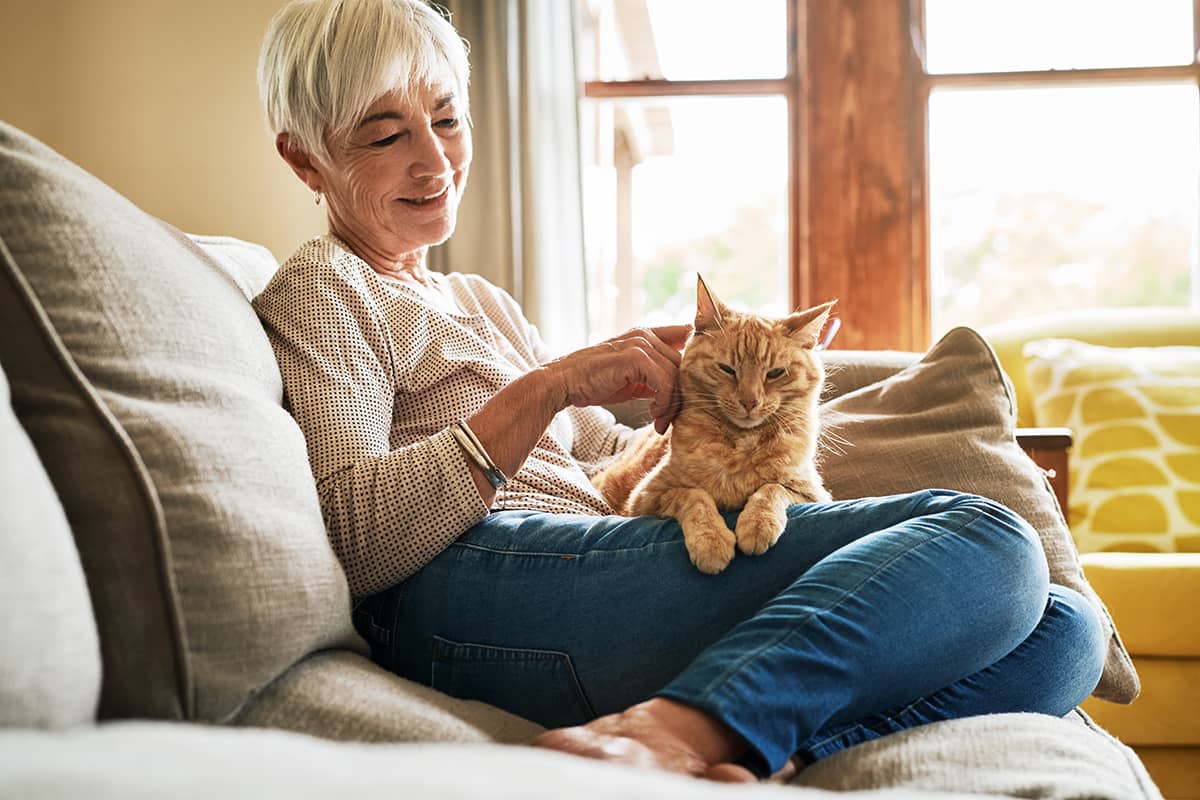Older Humans and Pussy Cats
This is a guest post by Linda McDonald RN, BN. Health Content Writer, and Freelance Journalist (and serious cat lover and shelter volunteer).
Are you considering becoming a cat parent? Are you or your loved one enjoying your golden years?
If so, take a moment to consider welcoming one of our senior pussycats into your home!
Adopting can be fun and healthy, for both you and your future feline.
First, let’s take a look at why.
Common Challenges
It’s no surprise that getting older is not a walk in the park.
Tough life changes for seniors can often include losing a spouse, children leaving home, and an overall decline in health and mobility.
The many changes that come with aging can often lead to an increase in anxiety and depression, social isolation, and loneliness.
Feeling blue in one’s golden years is more common than many people realize.
Pet ownership
Ok, bringing a pet home is not a magic bullet to fix all these concerns, however, it is pretty safe to say that becoming a pet parent goes a long way. Did you know that studies have shown a strong connection between owning a pet, and the improvement in mental and physical health of older adults? Seniors have reported their overall mood, and health improved through pet ownership. Our pets give us affection, mental stimulation, entertainment, exercise, and a sense of responsibility and purpose. A relationship with a pet undoubtedly can help many people, including seniors overcome loneliness and depression.
Am I a cat or dog person?
Both cats and dogs are wonderful animals that can be terrific pets for many people.
However, for an older person, a senior cat makes a lot of sense.
Why is that?
Cats don’t bark.
Cats purr. Fun fact – when cats purr they release endorphins (Feel good hormones) both in themselves and often in their humans.
Cats don’t need a walk.
Cats are content staying indoors.
Cats don’t need a bath.
Cats listen without arguing (usually).
Cats produce much smaller poops (which they thankfully bury).
Finally, let’s talk about longevity. Senior cats are less likely to outlive their owner (The average cat lifespan is between 13-17 years old).
Even better, senior cats tend to be mellower, easygoing, and more predictable than kittens and dogs; and, cats in their golden years are often content to hang out on your lap for hours on end.
Considerations
Although cats are relatively low maintenance, our beloved felines do have their needs:
- Regular feeding times & unlimited access to fresh, clean water.
- Stimulation (cat toys, and playing for 15 minutes/day is often enough).
- Clean litter (daily).
- Vet visits as needed.
- A comfy bed to call their own.
Costs
The initial costs of cat ownership include vaccinations, microchips, and neutering. Fortunately, our one-time adoption fee covers these costs.
The average monthly cost of owning a cat in Canada ranges from $25-$120 dollars/month for pet food, litter, and related supplies.
If finances are challenged, then perhaps consider fostering a senior cat.
FOSTERING
Pros:
Our senior cats have a safe and loving home and your attention to enjoy.
You have yourself a purring friend to enjoy and keep you company.
Tails to Tell covers these costs (food, cat litter, and vet visits if needed).
Cons:
These arrangements are often temporary as foster cats do get adopted.
TAILS to TELL
Tails to Tell can help you make the best choice for you.
We are a cat shelter with plenty of older adult and senior cats (8+) to choose from.
Adoption includes:
• 14-day trial
• Vet Check
• Microchip
• Vaccinations (up to date)
• Senior cat adoption fee: $125 compared to $299 for kittens.
• Convenience. If mobility is a concern, you can call Tails to Tell and ask about arranging to adopt or foster online and explore the possibility for your feline friend to be brought to your home.
Contact Tails to Tell Animal Rescue today for help finding you the purr-fect pussy cat fit for your golden years. Phone: (403) 946 – 0400 or email: info@tailstotell.ca




